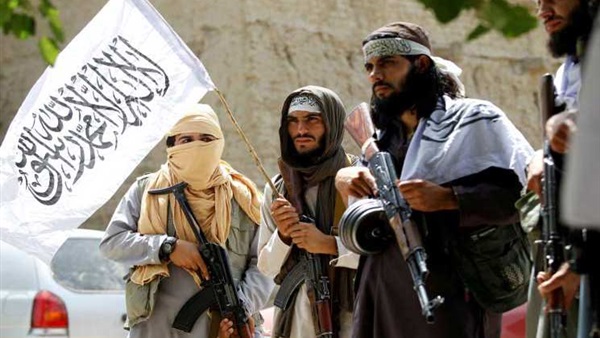Why did the West fight the Caliphate ?

The quest for a "caliphate"
was a pivotal point in the work of extremist organizations, which used to
recall this idea in order to increase its ability to polarize and mobilize. The
organizations also wanted to recall the idea of caliphate,
proving its adherence to the past, which can be characterized as religious
compared to current reality.
Extremist organizations deliberately
attack the secular reality prevailing in most Muslim countries; to prove the
link between the declining power of Muslim states and secularism. They see as a
means of entrenching the isolationism of Muslims in secular states.
The case of the "religious
self-denial" of some Muslims was an introduction to the demands of
extremist organizations for the need to return to the old political and
religious patterns They Include the
caliphate, because they established a leading position for Muslims in the world
at the time of their sovereignty.
Despite the success of some extremist
organizations in achieving their goals of establishing Islamic rule in some
areas - such as the Daesh and Taliban -
hoping that it will be able to extend its influence on the neighboring
areas in the future. But that type of governance did not last long. Where the
mechanism of government adopted did not keep pace with changes in the Muslim
mentality as a result of cultural openness to Western society.
Which means that democracy as a tool of
Western political practice, represented a problem of the concept of caliphate
at the theoretical and practical levels.
Why does the Caliphate contradict with
modern political ideology?
The idea of caliphate
occupies an essential position in the discourse of the Islamic organizations.
Where the latter deal with the caliphate as the ideal state that gives its
citizens the right to practice their religious rites without any restrictions.
Rather, the caliphate in the eyes of
these organizations coincides with the state. Which practices authoritarian
behaviour in order to limit the acquired behavioural patterns that conflict
with the religious self of the Muslims? That means that the state of the
Caliphate theoretically does not complete its role except by playing the role
of "no evil."
The term "Muslim Caliphate"
appeared for the first time after the death of the Prophet Muhammad when the
Prophet, PBUH, was succeeded by Abou Bakr El Sedeiq (may Allah be pleased with
him). Which confirmed that the word “Caliph” contained religious connotations
in conjunction with another political?
It is no wonder that the status of the
Caliphate requires him to delve deeper into the forensic sciences so that he
can facilitate the affairs of his compatriots in accordance with his religious
principles.
Moreover, the concept of
"caliphate" carries central connotations that include the
concentration of power in the hands of one man.
The caliph is the ruler and the military
commander, regarding the affairs of the judiciary or the needs of citizens,
without any oversight mechanism that would play a restrictive role to prevent
the despotism or reduce the negative effects that result from his decisions.
Although all caliphs used to take advisers,
these advisers were without real powers to restrict, postpone or even challenge
the governor's decisions.
Geography of the State of the Caliphate:
In the same context, the borders of the
Caliphate State did not adhere to certain geographic boundaries. Although in
theory it suffered the rule or subjugation of all Muslims in all parts of the
world.
This impression is in itself an acquired
behaviour and not a religious obligation, especially if we consider that the
Islamic religion is extended in some areas by Muslim merchants.
In other words, the idea is always extended
faster than the force of weapons. Making the geographical scope of the Islamic
religion transcend the boundaries of the Islamic state in all periods. For
example the presence of Islam in a number of African and Asian countries, such
as Nigeria and Indonesia, although neither of the two countries has been
governed by The State of the Caliphate in any period of time.
This was a justification for the Islamic
countries in different periods of time to invade these areas and subject the
Muslim inhabitants to the provisions of the Islamic religion.
Therefore, we always find all the
extremist organizations that seek to establish the state of the caliphate does
not recognize the national borders. And seeks to launch hostile attacks on
other countries, which produces a violent image of the Islamic religion itself.
The war against «Islamism»:
Because such actions constitute a threat
to international peace and security, all countries of the world are united in
order to defeat these organizations. As in the case of extremist organizations,
they do not leave room for any incident except to try to exploit it. The global
war against Islamism was promoted as a war against Islam in an attempt by
extremist organizations to attract more young Muslims.
Which
confirms the lack of acceptance of Islamism to the other opinion; in contrast
with Western political ideology, which depends primarily on the role of the
state «protector» of all views regardless of their content.
Using force or threat of using force in
international relations is prohibited according to international laws, which
makes all extremist organizations illegal in international law.
It
is therefore imperative for the international community to take a unified
situation in order to put an end for these organizations.
The mechanism of the transfer of rule
within the caliphate state, depends mainly on inheritance, not to mention
illegal means, which include killing or military coups. Which contradicts with
the Western ideology which is based on restricting the duration of the
individual's stay in power with a specific time frame to prevent its tyranny.
In Western democracies, it is recognized
that the governor's work in the presidential system is limited to two terms.
Unlike the parliamentary systems in which the prime minister is still entitled
to retain his position for as long as possible, as long as he enjoys popular
legitimacy through the elections.
Thus, the Caliphate as a theoretical
framework or practical practice is not fully compatible with Western political
ideology, represented by liberalism or its political "democracy".
Europe suffered from this for long
periods, when the Church fought all kinds of development.
For example, the Church fought the scientist
Galileo in the seventeenth century, because he proved that the earth revolves
around the sun, contrary to what the Church adopted at the time.
The Church, since its inception, has
built itself on some of the ancient Greek principles laid down by Aristotle and
Ptolemy in pre-Christian times. Which makes the theories of Galileo represent a
stab in the legitimacy of the religious and scientific church at the time.
Therefore, when the French Revolution
took place at the end of the eighteenth century, it worked on spreading the
idea of secularism,
as an effective mechanism for the elimination of religious despotism. Which is
always regarded as the most despotic system.
Because
it has a mental impact on its subordinates, as well as its rigid acceptance of
criticism.
Over time, the idea began to spread
throughout Europe, as secularism became the nerve of democracy.
While the second has the implications of
separation of powers in order to prevent political tyranny, the first included
isolating religion from all walks of life in favor of national nationalism.
Therefore, the adoption by Islamic
organizations of the idea of establishing
a religious state, even if it is an emirate in a region, is considered as a
threat to Western countries. Because it means the return of religious
nationalism to reappear within an entity, that does not recognize the borders
of other States. As well as, preparing itself for the invasion of its
neighboring States. In fact, such an act stabs international peace and
security.
Finally, it is noted that the Caliphate
is a model of the religious state that Europe has long taken to overcome. But
Europe has placed many restrictions on the role of religion in the modern civil
state to hinder any attempt to evoke religious nationalism again.









